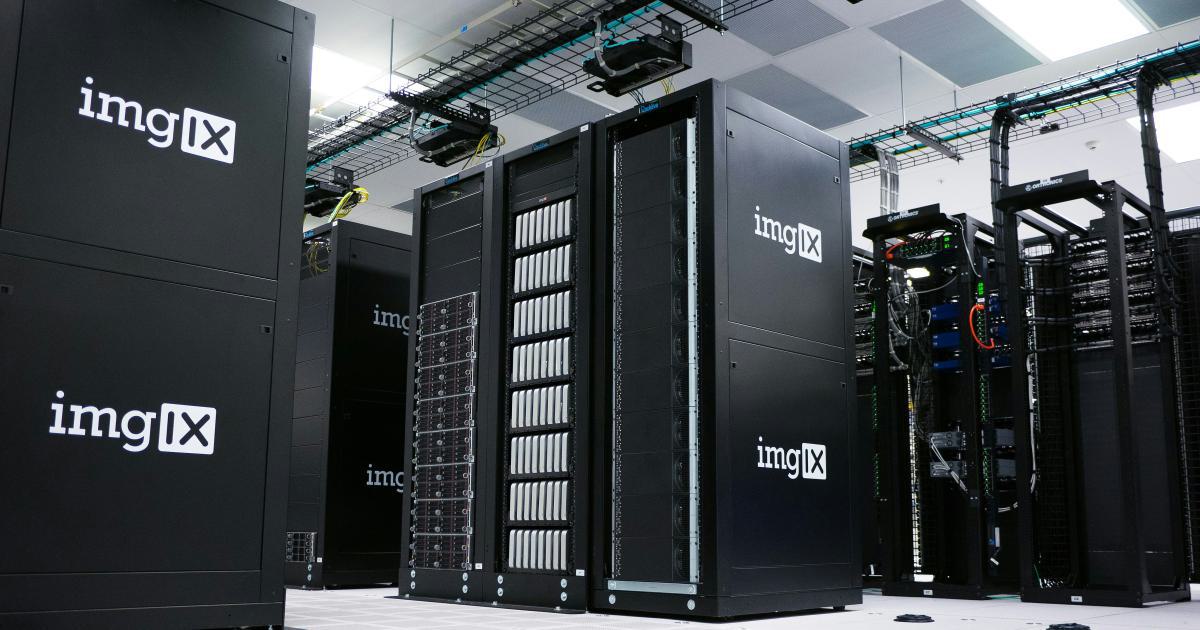The Future of Keyword Analysis: AI-Driven Insights


The Evolution of Keyword Analysis
In the ever-evolving digital landscape, the importance of keyword analysis has become paramount for businesses seeking to optimize their online presence and reach their target audience. Traditionally, keyword research has relied on manual processes, sifting through vast data sets and analyzing search trends to identify the most valuable keywords. However, the emergence of artificial intelligence (AI) is set to revolutionize the field of keyword analysis, offering unprecedented insights and transforming the way we approach digital marketing strategies.

As the digital world continues to expand, the volume and complexity of data have grown exponentially. Manually processing and extracting meaningful insights from this vast sea of information has become increasingly challenging, if not impossible, for human analysts. This is where AI-driven keyword analysis steps in, providing businesses with a more efficient and effective approach to understanding their target audience and optimizing their online presence.
The Power of AI in Keyword Analysis
AI-powered keyword analysis leverages advanced algorithms and machine learning techniques to uncover hidden patterns, trends, and insights that would be difficult, if not impossible, for human analysts to detect. By processing and analyzing vast amounts of data, AI systems can identify the most relevant and high-performing keywords, as well as uncover emerging trends and opportunities that may have been overlooked in traditional keyword research.
One of the key advantages of AI-driven keyword analysis is its ability to generate more accurate and comprehensive insights. AI systems can analyze a wide range of data sources, including search engine results, social media activity, website analytics, and industry-specific data, to provide a holistic understanding of the target audience's search behavior and content preferences.

Moreover, AI-powered keyword analysis can adapt and evolve over time, continuously learning and refining its models to stay ahead of the curve. As search engine algorithms and user behavior change, AI systems can quickly adjust their strategies, ensuring that businesses remain ahead of the competition and capitalize on the latest trends.
Unlocking Deeper Insights
Traditional keyword research often relies on surface-level data, such as search volume and competition, to determine the value of a particular keyword. However, AI-driven keyword analysis takes this a step further, uncovering deeper insights that can provide businesses with a more nuanced understanding of their target audience.

For example, AI systems can analyze the intent behind a user's search query, determining whether the user is looking to make a purchase, conduct research, or simply seeking information. This granular understanding of user intent allows businesses to craft more effective content and marketing strategies, ensuring that their messaging and offerings align with the specific needs and desires of their target audience.
Additionally, AI-powered keyword analysis can identify semantic relationships between keywords, uncovering related terms and phrases that may not have been obvious in traditional research. This can lead to the discovery of new, untapped opportunities and help businesses expand their keyword strategies beyond the obvious choices.
The Evolving Landscape of Keyword Analysis
As AI continues to revolutionize the field of keyword analysis, the landscape is rapidly changing, with new tools, techniques, and best practices emerging to help businesses stay ahead of the curve.
The Rise of AI-Powered Keyword Tools
The growing adoption of AI in the marketing industry has led to the development of a wide range of AI-powered keyword analysis tools. These tools leverage advanced algorithms and machine learning to provide businesses with a more comprehensive and intuitive approach to keyword research.

One such example is [Tool A], which uses natural language processing and sentiment analysis to identify the most relevant and profitable keywords for a business's specific industry and target audience. By analyzing a wide range of data sources, including customer reviews, social media conversations, and industry reports, [Tool A] can uncover long-tail keywords, emerging trends, and even identify potential pain points that businesses can address through their content and marketing strategies.
Another tool, [Tool B], takes a more holistic approach to keyword analysis, integrating data from search engines, social media, and competitor research to provide businesses with a 360-degree view of their target audience's search behavior. This tool's AI-powered algorithms can also identify opportunities for content optimization, suggesting related keywords and content ideas that can help businesses expand their reach and engagement.
As the demand for AI-driven keyword analysis continues to grow, we can expect to see an influx of new and innovative tools, each offering unique features and capabilities to help businesses stay ahead of the competition.
The Importance of Contextual Relevance
While the sheer volume of data and the speed at which it can be processed are undoubtedly impressive, the true power of AI-driven keyword analysis lies in its ability to provide contextual relevance. By understanding the nuances of user intent, sentiment, and the broader industry landscape, AI systems can help businesses craft more targeted and effective content strategies.

For example, a business selling outdoor gear may discover that the keyword "hiking boots" has a high search volume, but further analysis reveals that the majority of users are actually looking for information on hiking trails or outdoor activities, rather than making a purchase. By understanding this contextual relevance, the business can adjust its content strategy to focus on informative and educational content that addresses the user's needs, rather than simply optimizing for the high-volume keyword.
Similarly, AI-powered keyword analysis can help businesses identify emerging trends and pivot their strategies accordingly. As consumer preferences and search behaviors evolve, AI systems can quickly adapt, ensuring that businesses remain agile and responsive to the changing market dynamics.
The Convergence of Keyword Analysis and Content Strategy
As the field of keyword analysis continues to evolve, we're witnessing a growing convergence between keyword research and content strategy. AI-driven insights are not only informing the selection of keywords but also shaping the overall content creation and optimization process.

By understanding the underlying user intent and sentiment behind specific keywords, businesses can craft more compelling and relevant content that resonates with their target audience. This may involve the creation of educational resources, thought-leadership pieces, or even personalized experiences that cater to the specific needs and pain points of the customer.
Moreover, AI-powered content optimization tools can analyze the performance of existing content, identifying opportunities for improvement and suggesting new keywords, topics, or content formats that are likely to engage the target audience more effectively.
This convergence of keyword analysis and content strategy is enabling businesses to adopt a more holistic and strategic approach to their digital marketing efforts, delivering greater value to their customers and ultimately driving better results.
The Future of Keyword Analysis: Predictive Insights and Personalization
As AI-driven keyword analysis continues to evolve, we can expect to see even more advanced and sophisticated capabilities emerge in the coming years. Two key areas that are likely to shape the future of keyword analysis are predictive insights and personalization.
Predictive Insights
AI-powered systems are increasingly capable of analyzing past data and patterns to make accurate predictions about future trends and consumer behavior. When it comes to keyword analysis, this predictive capability can be invaluable for businesses seeking to stay ahead of the curve.

By leveraging machine learning algorithms and natural language processing, AI systems can forecast the rise and fall of specific keywords, identify emerging trends, and anticipate the changing search habits of their target audience. This allows businesses to proactively adjust their keyword strategies, content creation, and overall marketing approach to capitalize on these insights.
For example, an AI-powered keyword analysis tool might predict that a particular industry is likely to experience a surge in demand for a specific product or service in the next quarter. Armed with this information, the business can quickly pivot its content strategy, optimizing its website and marketing campaigns to target the anticipated increase in search volume and user interest.
Personalization
Another key area of development in the future of keyword analysis is personalization. As consumers increasingly demand more tailored and relevant experiences, businesses will need to leverage AI-driven insights to deliver personalized content and recommendations.

AI systems can analyze an individual user's search history, browsing behavior, and other contextual data to provide highly personalized keyword suggestions and content recommendations. This level of personalization can help businesses create a more engaged and loyal customer base, as users feel that the content and offerings are specifically catered to their needs and preferences.
Imagine a scenario where a user visits an e-commerce site looking for a new pair of running shoes. An AI-powered keyword analysis tool might not only identify the most relevant keywords for that user's search but also suggest complementary products, such as running socks or a fitness tracker, based on the user's previous purchases and browsing habits.
By seamlessly integrating personalization into the keyword analysis process, businesses can create a more immersive and enriching experience for their customers, ultimately driving increased engagement, conversions, and long-term loyalty.
The Ethical Considerations of AI-Driven Keyword Analysis
As the adoption of AI-powered keyword analysis continues to grow, it's essential to address the ethical considerations and potential pitfalls that come with this technology.
Data Privacy and Security
One of the primary concerns surrounding AI-driven keyword analysis is the issue of data privacy and security. These systems often rely on vast amounts of user data, including search histories, browsing behavior, and personal information, to provide more accurate and personalized insights.

Businesses must ensure that they are transparent about their data collection and usage practices, and that they have robust security measures in place to protect the sensitive information of their customers. Failing to do so can not only erode consumer trust but also expose the business to legal and reputational risks.
Algorithmic Bias
Another critical consideration is the potential for algorithmic bias in AI-powered keyword analysis. If the underlying algorithms or training data used by these systems are biased, the resulting insights and recommendations may perpetuate or even amplify existing inequalities and discrimination.

Businesses must work closely with their AI providers to ensure that the systems they are using are designed and trained with a strong emphasis on fairness, inclusivity, and ethical principles. Regular audits and monitoring of the AI's performance and outputs can help identify and mitigate any biases that may arise.
Transparency and Accountability
As AI-driven keyword analysis becomes more prevalent, it's essential that businesses are transparent about the way these systems work and how they are being used to inform their marketing and content strategies. Customers and stakeholders should have a clear understanding of the decision-making process and the potential impact of these AI-powered insights.

Businesses should also be prepared to take responsibility for the outcomes of their AI-driven keyword analysis, whether positive or negative. This includes being willing to address any concerns or issues that may arise and to make any necessary adjustments to their strategies to ensure that they are aligned with ethical and responsible practices.
By addressing these ethical considerations head-on, businesses can harness the power of AI-driven keyword analysis while maintaining the trust and confidence of their customers and stakeholders.
Conclusion: Embracing the Future of Keyword Analysis
As the digital landscape continues to evolve, the role of AI-driven keyword analysis in shaping successful marketing and content strategies will only become more crucial. By leveraging the power of advanced algorithms and machine learning, businesses can unlock deeper insights, uncover new opportunities, and deliver more personalized and engaging experiences for their customers.

However, the true value of AI-driven keyword analysis lies not only in the insights it provides but also in the way businesses choose to apply and act upon those insights. By embracing a holistic, ethical, and customer-centric approach, businesses can harness the transformative potential of this technology and position themselves for long-term success in the ever-changing digital world.